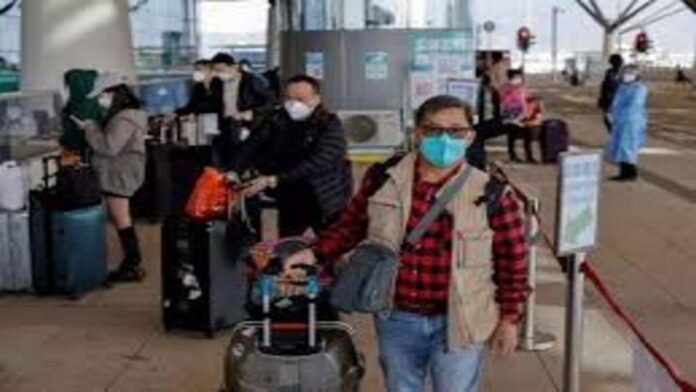The National Health Commission announced on Monday that China will stop requiring incoming travellers to undergo quarantine as of January 8 in a significant move to loosen restrictions on its borders, which have been largely closed since 2020.
The health authority announced in a statement that China’s management of Covid-19 will also be downgraded to the less stringent Category B from the present top-level Category A because the illness has become less virulent and will eventually turn into a typical respiratory infection.
China’s economy has been pummelling for three years by zero-tolerance policies, including border closures and frequent lockdowns. Last month saw the largest mainland demonstration of public unhappiness since President Xi Jinping assumed office in 2012.
However, China abruptly changed its policy last month, eliminating almost all of its domestic Covid limits. As a result, hospitals all around the nation are now struggling to deal with a widespread outbreak of infections.
Inbound travellers were nevertheless subject to stringent regulations, which included a five-day quarantine requirement at a facility under government supervision and a further three days of isolation at home.
Beginning on January 8, both that constraint and the one on the number of passengers on overseas flights will be lifted. However, the health administration noted that 48 hours prior to departure, PCR testing will still be required of visitors entering China.
According to the authority, plans for foreigners to visit China for work and other purposes will be made better, and it will also be made easier to obtain the required visas.
However, it noted, passenger admission and exit at land and sea ports will gradually restart, and Chinese nationals’ outbound travel will be resumed “in an orderly manner”.
Since January 2020, Covid-19 has been administered in China under Category A protocols, which encompass infectious diseases including cholera and the bubonic plague and give local authorities the authority to quarantine patients and their close contacts as well as to shut down entire areas.
The National Health Commission stated that epidemic prevention and control methods at important institutions, such as aged care institutions, will be improved even though China downgrades its management of the novel coronavirus.
According to the authority, if an outbreak worsens, the institution will implement so-called “closed management” to stop the spread of illnesses.
China will also push second vaccinations among those at high risk of serious illness and continue to raise the vaccination rate among the elderly.
The last significant nation to treat Covid as an endemic is China. The $17 trillion economy’s growth rate had been lowered by its containment measures to its weakest level in nearly 50 years, affecting international trade and supply lines.




